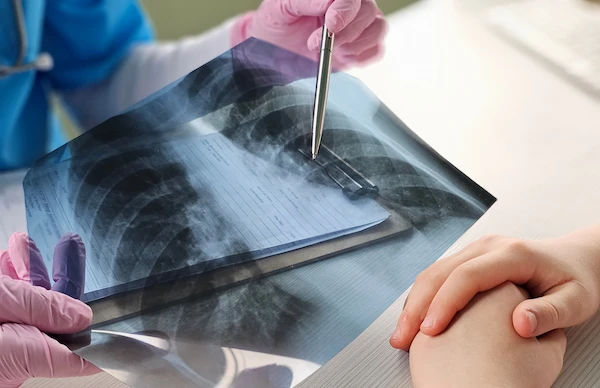Chia Seeds Side Effects for Women
While generally healthy, chia seeds can have side effects for women, including digestive issues, potential medication interactions (e.g., with blood thinners or diabetes meds), and impacts on nutrient absorption. Learn how to consume them safely.

Written by Dr. Rohinipriyanka Pondugula
Reviewed by Dr. Dhankecha Mayank Dineshbhai MBBS
Last updated on 28th Jul, 2025

Introduction
Chia seeds have gained immense popularity as a superfood due to their high nutritional value. Packed with fiber, protein, omega3 fatty acids, and antioxidants, they offer numerous health benefits, including improved digestion, heart health, and weight management. However, like any other food, chia seeds may have some side effects, especially for women.
If you're considering adding chia seeds to your diet, it's important to be aware of potential risks and how to consume them safely. This article will guide you through the possible side effects of chia seeds for women and tips to enjoy their benefits without any discomfort.
Possible Side Effects of Chia Seeds for Women
The possible side effects include:
1. Digestive Issues (Bloating, Gas, or Constipation)
Chia seeds are extremely high in fiber—just one ounce (2-8 grams) contains about 11 grams of fiber. While fiber is great for digestion, consuming too much too quickly can cause bloating, gas, or constipation, especially if you're not used to a highfiber diet.
How to Prevent It:
- Start with a small amount (½ to 1 teaspoon per day) and gradually increase.
- Drink plenty of water to help the fiber move smoothly through your digestive system.
2. Lowered Blood Pressure (Risk for Hypotension)
Chia seeds contain omega3 fatty acids, which help lower blood pressure. While this is beneficial for women with hypertension, those who already have low blood pressure (hypotension) or take blood pressure medications should be cautious, as excessive consumption may cause dizziness or fainting.
How to Prevent It:
- Monitor your blood pressure regularly if you consume chia seeds daily.
- Consult your doctor if you're on blood pressure medication.
3. Allergic Reactions (Rare but Possible)
Though rare, some women may experience allergic reactions to chia seeds, such as skin rashes, itching, or even difficulty breathing.
How to Prevent It:
- If you have a history of seed allergies, avoid chia seeds or try a small amount first.
- Stop consumption immediately if you notice any allergic symptoms.
4. Blood Thinning (Increased Bleeding Risk)
Chia seeds contain omega-3s, which have natural bloodthinning properties. Women taking blood thinners (like warfarin) or those with bleeding disorders should be cautious, as excessive chia seed intake may increase bleeding risk.
How to Prevent It:
- Consult your doctor before adding chia seeds to your diet if you're on blood thinners.
- Avoid consuming large amounts before surgery or dental procedures.
5. Hormonal Imbalance (Affects Estrogen Levels)
Some studies suggest that chia seeds may have mild estrogenic effects, meaning they could influence hormone levels. Women with estrogen sensitive conditions (like breast cancer or endometriosis) should consume them in moderation.
How to Prevent It:
- If you have hormonal concerns, speak with a healthcare provider before making chia seeds a regular part of your diet.
Consult Top Nutritionist
6. Weight Gain (If Consumed Excessively)
While chia seeds can aid weight loss by promoting fullness, they are also caloriedense (about 138 calories per ounce). Eating too many without adjusting your overall calorie intake may lead to weight gain.
How to Prevent It:
- Stick to recommended portions (1-2 tablespoons per day).
- Balance chia seeds with a healthy diet and exercise.
7. Choking Hazard (If Not Soaked Properly)
Dry chia seeds absorb water rapidly and can expand up to 10-12 times their size. If eaten dry without enough liquid, they may swell in the throat, causing choking or blockage in the esophagus.
How to Prevent It:
- Always soak chia seeds in water, milk, or yogurt for at least 10-15 minutes before eating.
- Avoid eating them dry, especially if you have swallowing difficulties.
Tips for Safe Consumption of Chia Seeds
The tips for sale consumption of chia seeds are:
1. Start Small – Begin with ½ teaspoon per day and gradually increase to 1-2 tablespoons.
2. Stay Hydrated – Drink plenty of water to prevent digestive issues.
3. Soak Before Eating – Prevents choking and improves nutrient absorption.
4. Monitor Your Body’s Response – If you experience discomfort, reduce intake.
5. Consult a Doctor if Needed – Especially if you have medical conditions or take medications.
When to Seek Medical Help?
If you experience severe digestive discomfort, allergic reactions, or unusual symptoms after consuming chia seeds, stop intake immediately and consult a doctor.
Final Thoughts
Chia seeds are a nutritious addition to a balanced diet, but moderation is key. By following these precautions, women can enjoy their benefits without unwanted side effects.
If you have concerns about chia seeds or need personalized dietary advice, you can consult a nutritionist or doctor on Apollo 24|7 for expert guidance.
Consult Top Nutritionist
Consult Top Nutritionist
Dr Sumanth R
General Physician
2 Years • MBBS
Bengaluru
PRESTIGE SHANTHINIKETAN - SOCIETY CLINIC, Bengaluru

Dr. Ramalinga Reddy
General Physician
5 Years • MBBS MD General medicine
Bengaluru
PRESTIGE SHANTHINIKETAN - SOCIETY CLINIC, Bengaluru
Dt. Ila Sharma
Clinical Nutritionist
18 Years • Master in food & Nutrition
Gurugram
VIPUL GREENS - SOCIETY CLINIC, Gurugram
Mrs Sneha P V
Nutritionist
10 Years • Master of science in Food and Nutrition
Bangalore
Apollo Clinic Bellandur, Bangalore
Ms. Bhavana Shetty
Dietician
7 Years • DDHN & Masters in Clinical Nutrition & Dietetics
Bangalore
Apollo Sugar Clinic, Seetha circle bangalore, Bangalore
Consult Top Nutritionist
Dr Sumanth R
General Physician
2 Years • MBBS
Bengaluru
PRESTIGE SHANTHINIKETAN - SOCIETY CLINIC, Bengaluru

Dr. Ramalinga Reddy
General Physician
5 Years • MBBS MD General medicine
Bengaluru
PRESTIGE SHANTHINIKETAN - SOCIETY CLINIC, Bengaluru
Dt. Ila Sharma
Clinical Nutritionist
18 Years • Master in food & Nutrition
Gurugram
VIPUL GREENS - SOCIETY CLINIC, Gurugram
Mrs Sneha P V
Nutritionist
10 Years • Master of science in Food and Nutrition
Bangalore
Apollo Clinic Bellandur, Bangalore
Ms. Bhavana Shetty
Dietician
7 Years • DDHN & Masters in Clinical Nutrition & Dietetics
Bangalore
Apollo Sugar Clinic, Seetha circle bangalore, Bangalore




